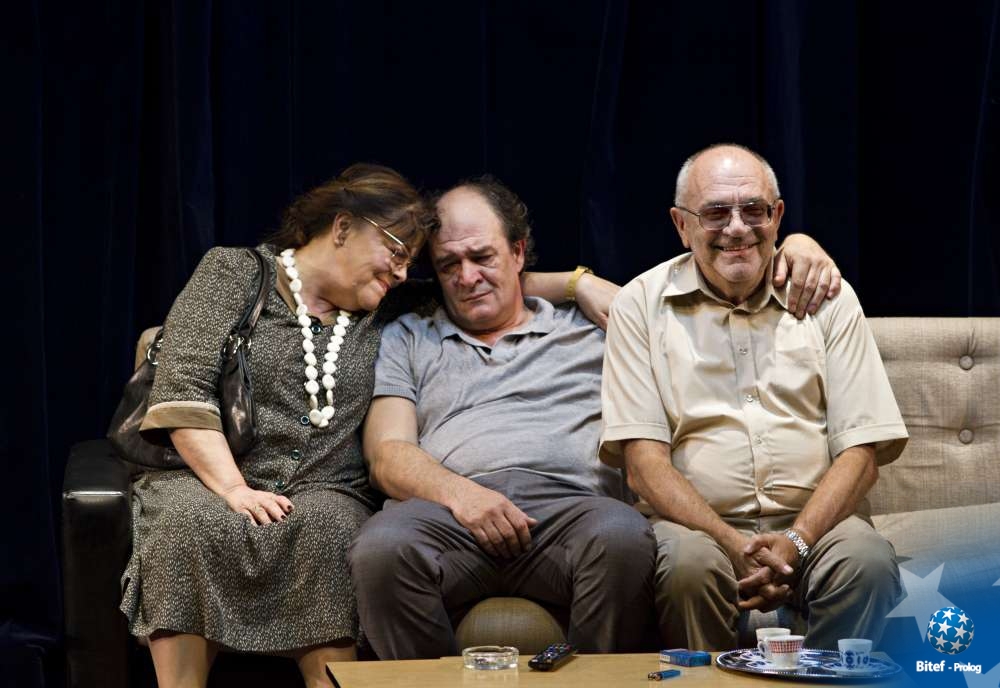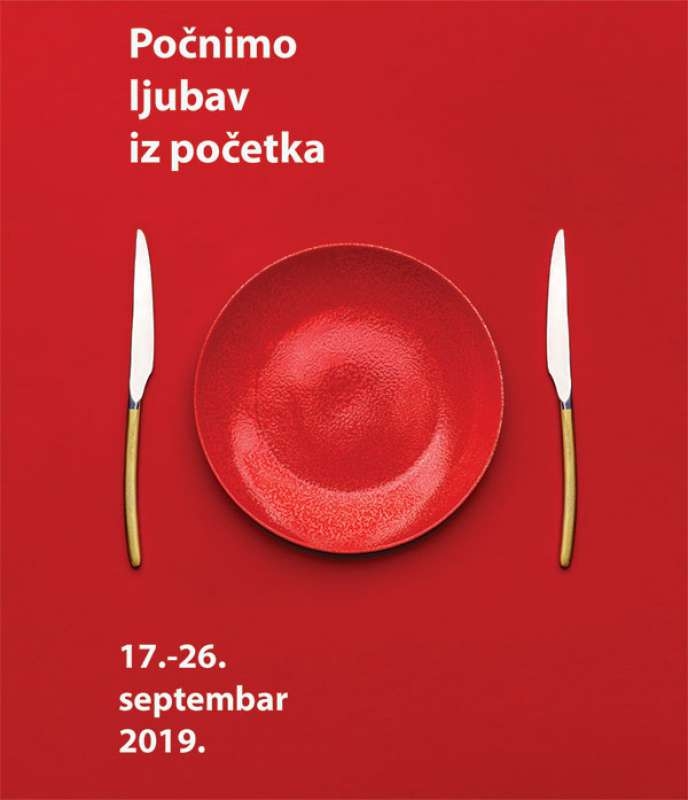- Mr R. is a character who crumbles under the pressure, as if he was both the executioner and the victim of life’s burdens. How can people resist the pressure nowadays and what do you think are the things that oppress us?
The problems of today are very similar to the problems of the seventies. What hurts us today are, like always, injustice, corruption, spiritual and material poverty, the fact that we are being lied to day after day. The madness we live in certainly does diminish the quality of theatre. We get enclosed into our own micro-worlds and only on those levels do we manage to solve and fix something. For the community to get better, we’ll have to wait for a very long time. That is, unfortunately, the problem that the countries in transition are facing, the countries with a high percent of people who are barely educated.
- The performance takes place in the 70ies with some anachronous present-day interventions. Have we learned something from the past?
Very little, I’m afraid. We tend to forget very quickly. One of the reasons is the speed of life.
- What did you find inspiring in the process and was the topic of the performance similar to the performances you played in the previous seasons? Do you think that theatre and film authors are nowadays going in the same direction?
I have never participated in a process similar to this one. This is a new and precious experience. Bobo Jelčić, the director, worked with the actors in a completely new way. We developed certain topics in the rehearsals and became some kind of co-authors of our performance. Led by an almost invisible director’s hand, we achieved the result. The starting point of the research is our inner world which is, naturally, linked to a problem we are trying to solve in each scene. As for the directors, I can see that they are interested in concept, and documentary theatre. The role of actors will turn out to be less and less relevant in the so-called new modern theatre, I’m afraid.
- Would you say that artists are a part of the community or rather a separate community?
Artists receive so little care that I’d say they’re almost marginalized. In such unfavourable conditions, I’d say we survive just out of spite.
- Can theatre offer any solutions?
It should educate, it should point out at what is good and what’s evil. It should raise the awareness among its audience. Yes, theatre definitely should offer solutions.
- Could you describe the process? Judging by the wonderful result, we can tell that the cooperation between the director and the actors was very powerful. How did you create the characters?
We really are a serious team, a winning team you can say when you look at all the awards we have won. It’s a topical issue and it concerns all of us.
- The light in the audience remains on throughout the performance. What is your experience with the “fourth wall” being torn down? Could we say that the present moment demands for the “fourth wall” to be torn down in the community as well?
If art is a form of communication, and it is, then the removal of the “fourth wall” in theatre also removes the barrier of time and space, thus gaining in strength and reason. Audience participation is lively and active. The power of experience depends on this interaction between the audience and the actors. There are actors who break down the barrier with ease and the ones who don’t. I think that theatre nowadays insists on this interaction more than ever.
- What are your thoughts on this year’s slogan “Let’s Start Love Over”? What are the challenges that the survival of love depends on?
A tremendous choice of slogan. There’s so much hate, malice, bad critical thinking, lack of understanding, evil, judging and contempt, it can only be overcome through love. I’m talking about the region we live in, but about the world as a whole, as well.

